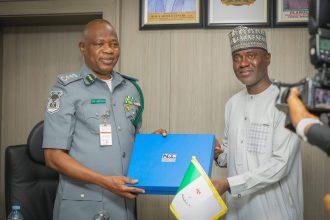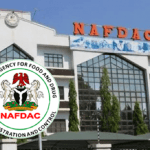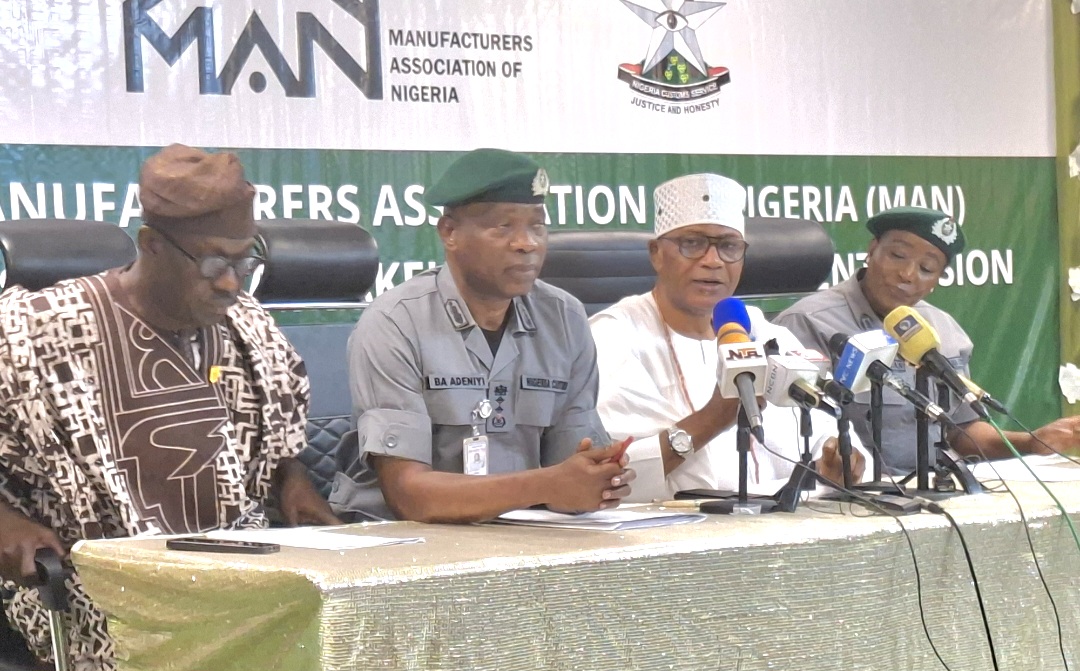When it comes to Nigeria’s import trade logistics, there are very important documents you must know or have to be able to have a seamless clearance and release of consignment to the importer or shipper. These documents constitute the most prominent requirements for the importation of diverse cargo into the Nigeria Customs territory.
As a matter of fact, these documents must be accurate and free from any form of manipulative act. In other words, these documents must comply with trade regulations as any form of inaccurate or incorrect documentation, such as wrong valuation, classification, inaccurate invoicing, misinformation, or disinformation in shipping documents or failure to obtain the appropriate import licenses or permits will attract very costly sanctions.
It’s always advisable to comply with trade regulations when it comes to shipping documents as document accuracy promotes compliance with extant trade laws and regulations, logistics efficiency, transparency, compliance, as well as trust between shippers and their agents.
In this article, The Portway has listed and explained the nine (9) most important shipping documents that makes up the requirements for importation into Nigeria. These documents are all connected with each other because they contain similar information on the cargo to be imported, suppliers, country of origin, carriers, shippers, or importer, which are then verified for consistency, accuracy by Customs, other relevant clearing authorities before cargo is released to the shipper/importer or consignee.
Let’s run through them:
Form-M
This is otherwise known as ‘Monitoring Form’. Form M is a mandatory statutory document to be completed by all importers for importation of goods into Nigeria.
The life span of a Form M is 180 days (for general merchandise) and 365 days (for plant and machinery), after which an extension of 180 days (for general merchandise) and 365 days (for plant and machinery) can be granted on the Form M by the Authorized Dealer. Any further extension has to be approved by the Central Bank of Nigeria (CBN).
It is therefore mandatory for all importers to complete and register Form ‘M’ with Authorized Dealers at the time of placing orders whether the transaction is valid for foreign exchange or not. This is currently initiated electronically on a Trade Portal provided by the Central Bank of Nigeria in conjunction with the Nigeria Customs Service.
It is processed by authorized dealer banks with the following documents:
- Certificate of Incorporation
- Importer’s Tax Identification Number (TIN)
- Proforma Invoice
- Insurance Certificate
- Product Certificate (for Standard Organization of Nigeria (SON) regulated items)
Pre-Arrival Assessment Report (PAAR)
PAAR is an acronym for Pre-Arrival Assessment Report. To clear goods entering into Nigeria, a Nigeria Customs Service (NCS) approved and valid PAAR report is required.
This document is one of the key requirements of the Nigerian Customs Services for clearing imported goods into Nigeria. As is the case with Form M, PAAR is usually processed by authorized commercial banks. It is a tool for accurate duty assessment.
It is a document (or Clean Report of Inspection document) which confirm conformity of the import to importer’s country set criteria and or import guidelines. It provides timely, multi-dimensional risk analysis at every stage of customs processes.
PAAR is also a document that determines the rate of duty to be paid on a particular item / Group of items imported. It also show clearly the exchange rate at the time of transaction.
The following documents are required to process PAAR:
- Final Invoice
- Packing List
- Original Bill of Lading (for Sea freight) or airwaybill (for airfreight)
- CCVO (Combine Certificate of Value and Origin)
- Son Cap Certificate.
- Manufacturers’ Certificate of origin (if applicable)
- Certificate of Analysis (depending on the item imported)
Packing List
A Packing List is an important shipping document detailing the contents of the exported goods or container. Sometimes it also details the dimension and weight of each container. The packing list is normally fixed or attached to the exterior of the container.
It is an important document used widely in international trade, which comes with the shipment, informing the concerned transportation companies of what is being transported.
The packing list is like a guide to the Clearing and Forwarding agent, prepared by your supplier.
A well prepared Parking list has the following details:
- Name and address of the exporter or supplier
- Name and address of the importer or consignee
- Date
- Description of packages and goods
- Quantity of the goods
- Net weight and Gross weight
- Dimension of the imported goods
- Form M and BA numbers
Proforma Invoice
A pro forma invoice is a preliminary bill of sale sent to buyers in advance of a shipment or delivery of goods. The invoice will typically describe the purchased items and other important information, such as the shipping weight and transport charges. Pro forma, Latin for “as a matter of form” or “for the sake of form,” invoices often come into play with international transactions, especially for customs purposes on imports.
Key Details in a Proforma invoice include :
- Pro forma invoices are sent to buyers ahead of a shipment or delivery of goods or services.
- Most pro forma invoices provide the buyer with a precise sale price.
- There are no guidelines dictating the exact presentation or format of a pro forma invoice
- A pro forma invoice requires only enough information to allow customs to determine the duties needed from a general examination of the included goods.
- The buyer (importer) and the seller (the supplier) in the transaction
- A comprehensive description of the shipment
- The Harmonized System classification of goods (HS Code)
- International Commercial Terms (INCOTERM) of payment
- Mode of transportation, place, and cost of delivery
- Currency used for quotation
- Validity period
Commercial Invoice
The commercial invoice is a legal document between the supplier and the customer that clearly describes’ the sold goods, and the amount due on the customer. The commercial invoice is one of the main documents used by customs in determining customs duties.
A well prepared commercial invoice should include the following :
- Full payment detail for each transaction, upon approval of the proforma invoice or quotation
- Order or purchase order number
- Importer’s reference number
- Description of goods
- Price per unit at a particular location
- Total quantity
- Total value
- Packing specifications
- INCOTERMS of sale
- The total number of packages
- Name and number of flight or vessel conveying items
- Bill of lading number
- Place and country of origin
- Terms of payment
- Invoice validity period and approved, etc.
Bill of Lading/Airwaybill
A bill of lading (BL or BoL) is a legal document issued by a carrier to a shipper that details the type, quantity and destination of the goods being carried. A bill of lading also serves as a shipment receipt when the carrier delivers the goods at a predetermined destination.
An airwaybill on the other hand is a contract of carriage between the air carrier and the shipper/importer with detail of the goods to be carried, as in the Bill of Lading.
Typically, a Bill of Lading includes the name of the carrier, the name of the consignee, a detailed list of goods being transported, number of packages and kind of packaging, weight and/or volume of the cargo, each package’s freight class, terms of payment and special handling instructions.
While Bills of Lading can either be direct or negotiable, Airwaybills are not negotiable. You may be wondering how a Bill of Lading is negotiable. Yes, it is!
A Negotiable Bill of Lading is common when a Letter of Credit is involved. Here, the Bill of Lading is consigned according to the order of the shipper, signed by the shipper, and sent to an authorized bank in the buyers’ country. The bank holds the original Bill of Lading until the shipper meets the terms in the Letter of Credit.
A Direct Bill of Lading is not consigned to a particular consignee (who may either be the shipper or its authorized agent), who takes possession of the consignment(s) or shipment(s), once a signed original Bill of Lading is tendered.
Certificate of Origin
Certificate of Origin is a document that certifies that an imported item is truly obtained, manufactured, or produced in a particular country of origin, as presented to Customs during an examination.
SONCAP Certificate
SONCAP is an acronym for Standard Organisation of Nigeria Conformity Assessment Program. SONCAP Certificate (SC) is a mandatory document used by the Nigerian Customs Services for clearance of goods going to Nigeria.
SONCAP certificates are usually processed at origin and the aim is to ensure that manufactured goods imported into Nigeria meet the minimum safety standard. In other words, such goods must be certified by the SONCAP issuing bodies from the origin, just to make sure that the final consumer is not exposed to the safety implications of sub-standard products.
National Agency for Food and Drug Administration and Control (NAFDAC) Permit/Certificate
Importers of NAFDAC regulated goods such as Food, drugs, cosmetics, medical devices, packaged water, chemicals, and detergents, are expected to obtain a NAFDAC permit before such goods can be imported. Following a recent directive by the Central Bank of Nigeria, the permit can only be obtained electronically on the CBN trade portal and this also means that:
Only digital forms issued by NAFDAC will be valid for the importation of NAFDAC regulated goods, as stated above.
Applicants must now input the approval reference code stated on the NAFDAC e-licenses for Form-M, Pre-Arrival Assessment Report (PAAR) processing, Customs Clearance, and other trade-related transactions.
The above are the most important shipping documents you must pay attention to if you are making plans of importing into Nigeria. Doing this will save you a lot of trouble especially from the hands of Nigeria Customs Service (NCS). Always ensure that the appropriate import documentation and the right permits are obtained to avoid costly sanctions.















